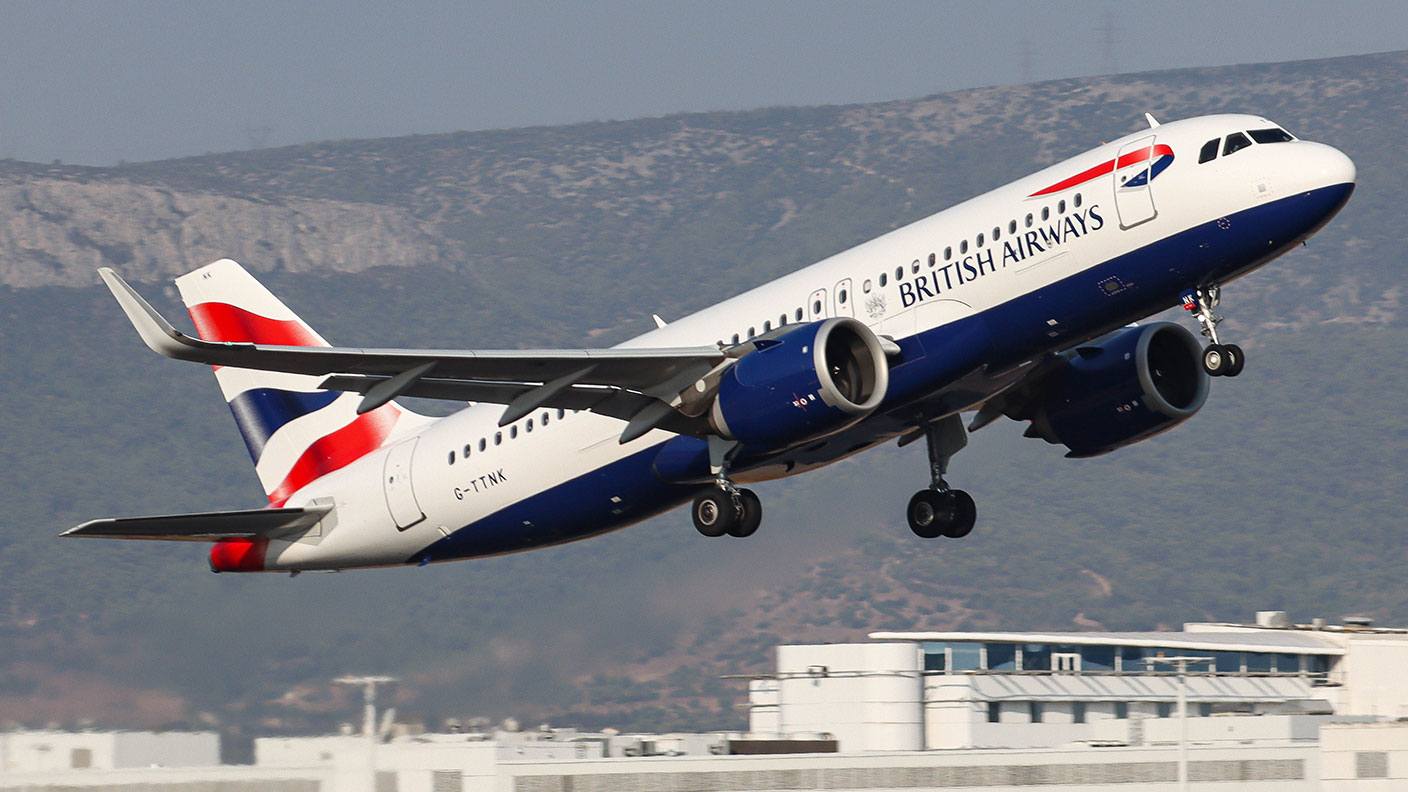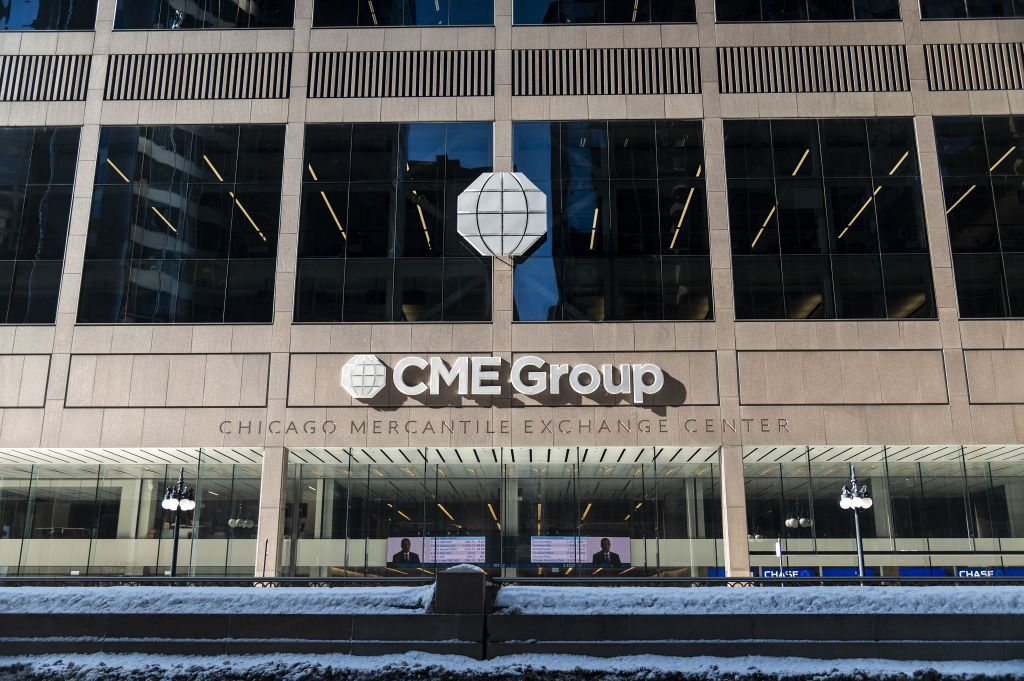IAG's share price is ready for take-off - here's how to play it
The owner of British Airways has had a turbulent year, but is now worth a punt. Matthew Partridge explains the best way to play it.


Get the latest financial news, insights and expert analysis from our award-winning MoneyWeek team, to help you understand what really matters when it comes to your finances.
You are now subscribed
Your newsletter sign-up was successful
Want to add more newsletters?

Twice daily
MoneyWeek
Get the latest financial news, insights and expert analysis from our award-winning MoneyWeek team, to help you understand what really matters when it comes to your finances.

Four times a week
Look After My Bills
Sign up to our free money-saving newsletter, filled with the latest news and expert advice to help you find the best tips and deals for managing your bills. Start saving today!
At the start of the crisis in March I suggested investing in International Consolidated Airlines Group (LSE: IAG), the owner of British Airways. Those who took my advice would have endured a bumpy ride.
The shares surged to 330p before falling back to 155p in early August, meaning that you would have had to close the position at the adjusted stop-loss of 200p. The stock is now at 216p, slightly below where it was when I first tipped it in March. Despite the roller-coaster ride, I think it is time to give the airline group a second chance.
One of the key reasons why IAG’s shares have done so badly is that the travel restrictions and border closures imposed by most governments in order to combat the virus have lasted longer than many people initially predicted.
MoneyWeek
Subscribe to MoneyWeek today and get your first six magazine issues absolutely FREE

Sign up to Money Morning
Don't miss the latest investment and personal finances news, market analysis, plus money-saving tips with our free twice-daily newsletter
Don't miss the latest investment and personal finances news, market analysis, plus money-saving tips with our free twice-daily newsletter
Although there was a brief resurgence in travel during the summer, as people went on their holidays, this has faded away, with many governments reimposing restrictions in order to reduce the chances of a second wave of the virus in the autumn.
Airlines face strong headwinds
Many experts worry that the industry’s problems could persist even after the crisis ends, with many business trips and conferences carried out online. At the very least, many firms may simply decide that travel budgets are an easy target at a time when many of them are facing sharply reduced profits, or even struggling to stay in business.
IAG’s management is deeply pessimistic. CEO Willie Walsh thinks that the number of passengers using BA may not return to pre-crisis levels until 2023. The company also plans to issue more shares to raise cash to see it through the crisis. As a result, existing shareholders will see their holdings diluted by as much as 50%.
All this looks very bleak. However, there are several reasons to be cheerful. Firstly, most experts agree that there is a good chance that we could see a vaccine by the end of the year, which could see a permanent end to the crisis. Next, similar predictions about the end of business travel were made after the terrorist attacks in 2001 and Sars in 2002-2003, only for it to bounce back.
While the rights issue is not good news for shareholders, it at least reduces the risk of IAG being pressured into accepting a government bailout, which would inevitably come with an equity stake.
Perhaps the best reason to buy into IAG is its valuation. The shares have rallied by nearly 40% from their August lows, but still trade at just two times 2019 earnings, which looks cheap even if shareholders’ holdings are going to be diluted or the recovery in business travel takes longer than expected. I recommend that you buy IAG at the current price of 206p at £15 per 1p. With a stop-loss at 140p, this gives you a total downside of £990.
How my tips have fared
The last four weeks have seen a mixed performance by my three long tips. Royal Dutch Shell produced better second-quarter earnings than many analysts expected, but the oil giant’s shares fell from 1,179p to 1,086p.
Even though it is set to be removed from the FTSE 100, media group ITV remained steady at 58p. Industrial and construction equipment group United Rentals appreciated from $160 to $177, thanks to an unexpectedly good earnings report.
My three long tips are making a collective profit of £1,301 owing to the £2,484 in profits from United Rentals.
My three short tips have also gone in different directions. Electric-truck maker Nikola increased from $36 to $40, thanks to an announcement that it will sell 2,500 trucks to a waste-disposal firm.
Exercise-bike manufacturer Peloton also rose, from $72 to $76. However, online insurance-broker eHealth fell from $68 to $63 amid concern that the number of people cancelling policies is increasing.
Shares in online education provider GSX Techedu declined from $91 to $85, although it hasn’t fallen below the $70 at which I suggested you start shorting. My short positions are making a total profit of £1,172.
Counting International Consolidated Airlines Group, I now have four long tips and three short ones, which is a reasonable balance. Given that my tip on Royal Dutch Shell is making a loss after nearly six months, I will be keeping an eye on it with a view to closing it soon unless things improve.
I also suggest that you raise the stop-loss on United Rentals to $150 and cover your position on eHealth if it reaches $100. As for the other positions, stick with them.
Get the latest financial news, insights and expert analysis from our award-winning MoneyWeek team, to help you understand what really matters when it comes to your finances.

-
 How a ‘great view’ from your home can boost its value by 35%
How a ‘great view’ from your home can boost its value by 35%A house that comes with a picturesque backdrop could add tens of thousands of pounds to its asking price – but how does each region compare?
-
 What is a care fees annuity and how much does it cost?
What is a care fees annuity and how much does it cost?How we will be cared for in our later years – and how much we are willing to pay for it – are conversations best had as early as possible. One option to cover the cost is a care fees annuity. We look at the pros and cons.
-
 Should you sell your Affirm stock?
Should you sell your Affirm stock?Affirm, a buy-now-pay-later lender, is vulnerable to a downturn. Investors are losing their enthusiasm, says Matthew Partridge
-
 Profit from pest control with Rentokil Initial
Profit from pest control with Rentokil InitialRentokil Initial is set for global expansion and offers strong sales growth
-
 In the money: how my trading tips fared in 2025
In the money: how my trading tips fared in 2025The success of the open positions offset losses on closed ones, says Matthew Partridge
-
 Coreweave is on borrowed time
Coreweave is on borrowed timeAI infrastructure firm Coreweave is heading for trouble and is absurdly pricey, says Matthew Partridge
-
 Circle sets a new gold standard for cryptocurrencies
Circle sets a new gold standard for cryptocurrenciesCryptocurrencies have existed in a kind of financial Wild West. No longer – they are entering the mainstream, and US-listed Circle is ideally placed to benefit
-
 Profit from other investors’ trades with CME Group
Profit from other investors’ trades with CME GroupCME Group is one of the world’s largest exchanges, which gives it a significant competitive advantage
-
 Investors need to get ready for an age of uncertainty and upheaval
Investors need to get ready for an age of uncertainty and upheavalTectonic geopolitical and economic shifts are underway. Investors need to consider a range of tools when positioning portfolios to accommodate these changes
-
 How much gold does China have – and how to cash in
How much gold does China have – and how to cash inChina's gold reserves are vastly understated, says Dominic Frisby. So hold gold, overbought or not